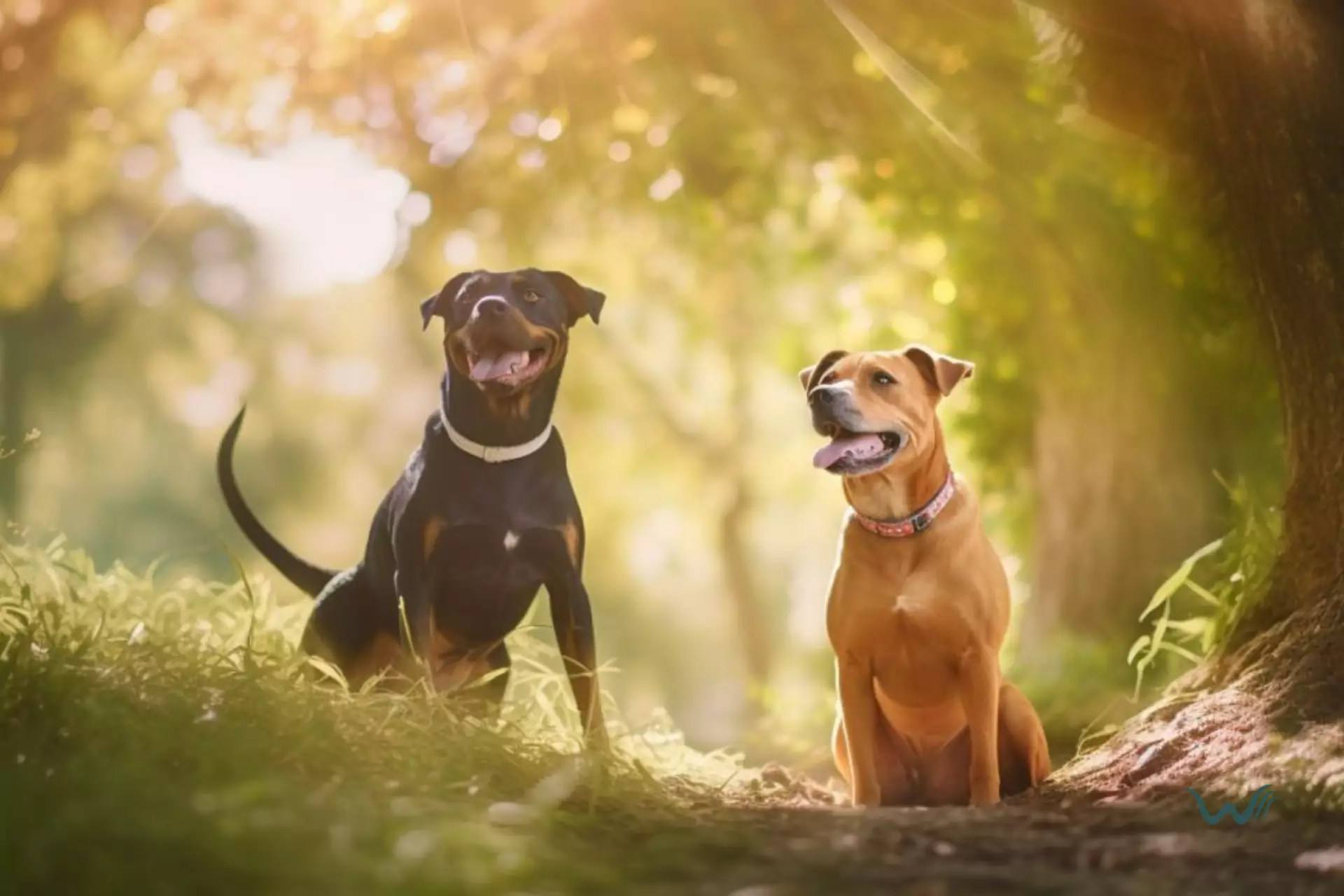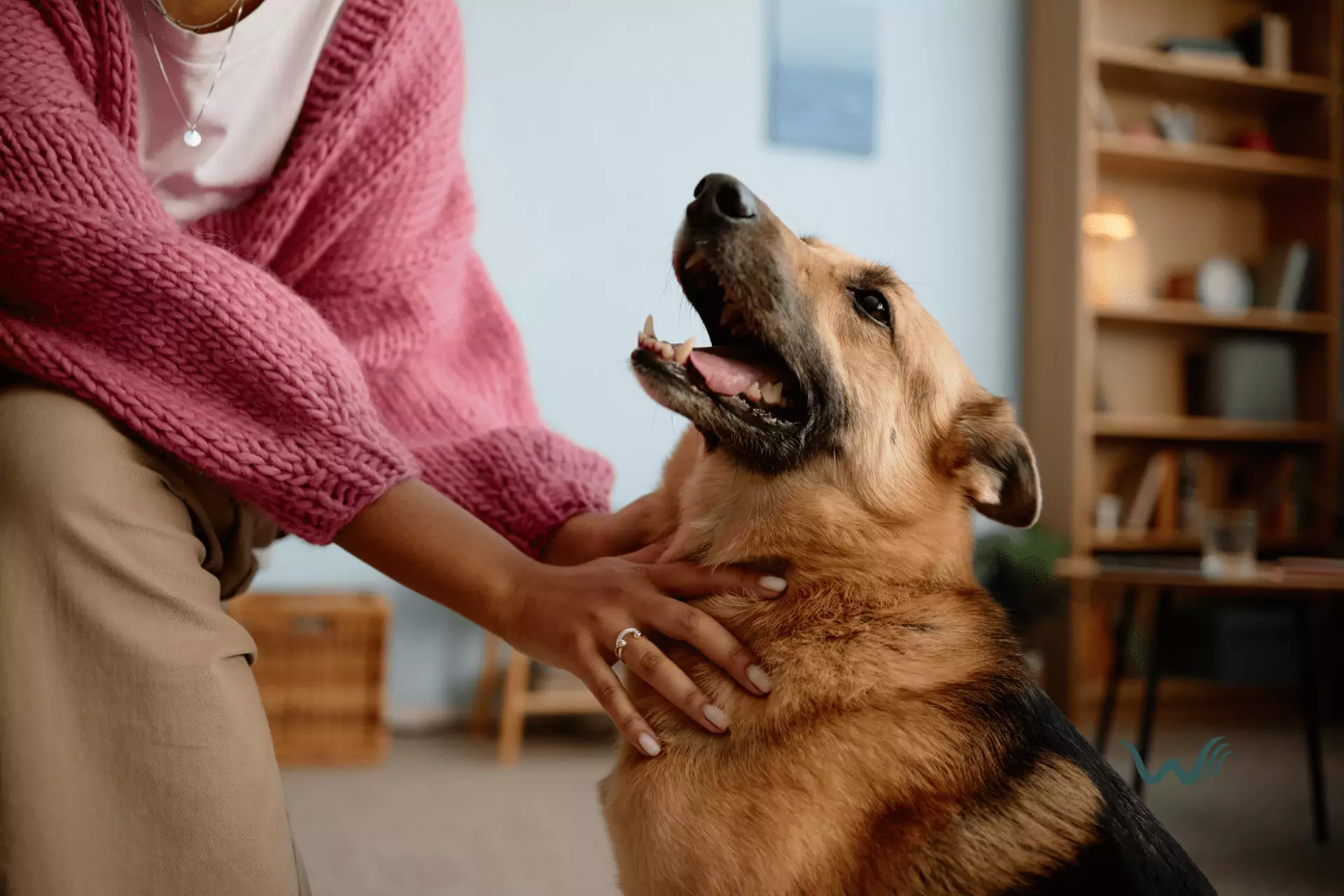

Understanding Dog Socialization And Different Breeds
by Ayesha Aziz
Last updated: April 19, 2024
Verified and Approved by:
Angela Morris,
MSW, LCSW
Fact Checked

Are you a dog lover who wants to ensure that your furry friend is happy and well-adjusted in social situations? Understanding dog socialization is key to creating a positive and fulfilling experience for both you and your dog.
Whether you have a playful Pomeranian, a loyal Labrador, or a mischievous Maltese, each breed has its own unique socialization needs. In this article, we will explore the importance of dog socialization, the factors that can affect it, and how different breeds may require different approaches when it comes to socializing.
So, grab a treat, sit back, and get ready to dive into the fascinating world of dog socialization!
Factors such as genetics, experiences, and early socialization play a significant role in determining a dog’s sociability. Understanding these factors and tailoring your approach accordingly can make a world of difference in your dog’s overall well-being and happiness. So, whether you have a sociable Saint Bernard or a shy Shih Tzu, learning about their specific socialization needs is essential for their development and your peace of mind.
The Importance of Dog Socialization
Dog socialization is crucial for them to become well-adjusted, happy members of society. When dogs are properly socialized, they learn how to interact with other dogs, animals, and humans positively and appropriately. This is important because it helps them develop the necessary skills to navigate the world around them and reduces the risk of behavioral issues later in life.
By exposing your dog to different environments, people, and situations, you’re helping them build confidence and adaptability. They learn how to handle new experiences without fear or anxiety, which is essential for their overall well-being.
Socialization also helps prevent aggression and fear-based behaviors, as dogs who are well-socialized are more likely to feel comfortable and secure in various situations.
Furthermore, socialization is not just about teaching your dog how to interact with others, but also about teaching them how to be a well-behaved member of society. When your dog is properly socialized, they learn important skills such as walking nicely on a leash, coming when called, and behaving appropriately in public settings. This not only makes your life easier, but it also allows your dog to be a positive ambassador for their breed and a pleasure to be around.
So, take the time to socialize with your dog and watch as they become a confident, adaptable, and well-behaved companion that brings joy to everyone they meet.
Learn how you can maximize travel comfort with an emotional support animal.
Factors Affecting Dog Socialization
Factors such as early experiences and interactions greatly impact your dog’s ability to form positive relationships and navigate social situations. During the critical period of socialization, which typically occurs between 3 and 14 weeks of age, your dog’s brain is highly receptive to new experiences and learns important social skills. Positive interactions during this time can help your dog develop confidence, resilience, and the ability to adapt to new environments. On the other hand, negative experiences or lack of socialization can lead to fear, anxiety, and aggression towards other dogs or people.
To better understand the factors affecting dog socialization, let’s take a look at the following table:
| Factor | Impact on Socialization |
|---|---|
| Early experiences | Positive experiences during the critical period of socialization can shape your dog’s temperament and behavior, making them more confident and friendly. Negative experiences can lead to fear and aggression. |
| Genetics | Breeds have different temperaments and socialization needs. Some breeds are naturally more sociable, while others may be more reserved or prone to aggression. |
| Environment and owners | The environment in which your dog grows up and the way you interact with them play a crucial role in their socialization. A supportive and positive environment can greatly enhance their social skills. |
By understanding these factors, you can take proactive steps to ensure your dog receives proper socialization. This will not only foster positive relationships but also help them become well-adjusted members of society.
Different Breeds and Their Socialization Needs
When it comes to the socialization needs of various breeds, it’s essential to recognize their unique temperaments and adaptability.
Different breeds have different personalities and preferences when it comes to socializing with other dogs and humans. Some breeds, like Golden Retrievers and Labrador Retrievers, are known for their friendly and sociable nature. They tend to get along well with other dogs and enjoy meeting new people. These breeds thrive in social environments and are often easy to train when it comes to socializing.
On the other hand, breeds like Chihuahuas and Dachshunds may be more reserved and cautious around strangers. They may require more time and patience to feel comfortable in new situations. Understanding the specific needs of each breed will help you provide the best socialization opportunities for your dog.
In addition to their temperaments, the adaptability of different breeds also plays a role in their socialization needs. Some breeds are more adaptable and can easily adjust to new environments and social situations. These breeds, such as Border Collies and Australian Shepherds, are often highly intelligent and quick learners. They can easily adapt to different social settings and enjoy new experiences.
On the other hand, breeds with lower adaptability, such as Shih Tzus and Bulldogs, may require more time and patience when it comes to socializing. They may be more resistant to change and need gradual exposure to new people and situations. By understanding the adaptability of different breeds, you can tailor your socialization approach to meet the specific needs of your dog.
Tips for Successful Dog Socialization
To ensure successful dog socialization, it’s essential to start early and expose your furry friend to a variety of positive experiences. This will help them develop confidence and learn how to interact with different people, animals, and environments.
Here are some tips to help you achieve successful dog socialization:
- Start early: The earlier you start socializing your dog, the better. Puppies are more receptive to new experiences and are more likely to adapt to different situations. Introduce them to new people, animals, and environments in a controlled and positive manner, making sure to monitor their reactions and provide support if needed.
- Positive reinforcement: Use positive reinforcement techniques, such as treats, praise, and rewards, to encourage your dog’s good behavior during socialization. Reward them for calm and friendly interactions with people and animals. This will help them associate socialization with positive experiences and reinforce their good behavior.
- Gradual exposure: Gradually expose your dog to different socialization experiences, starting with low-stress situations and gradually increasing the difficulty level. For example, start by introducing them to one new person or animal at a time, and then gradually increase the number of individuals they interact with. This will help them build confidence and prevent overwhelming situations.
Common Challenges in Dog Socialization
Navigating the world of dog socialization can sometimes feel like wading through a maze of unfamiliar territories. As you embark on the journey of socializing with your furry friend, it is important to be aware of the common challenges that may arise. By understanding these challenges, you can better prepare yourself and your dog for successful socialization experiences.
One common challenge in dog socialization is fear and anxiety. Dogs, like humans, can experience fear or anxiety when faced with new situations or unfamiliar environments. This can make it difficult for them to interact with other dogs or people. To help your dog overcome this challenge, it is important to create a positive and supportive environment. Gradually introduce your dog to new experiences, starting with low-stress situations and increasing the level of difficulty. Additionally, providing treats and positive reinforcement can help your dog associate new experiences with positive outcomes.
Another challenge in dog socialization is aggression. Some dogs may display aggressive behaviors towards other dogs or people. It is important to address these behaviors early on to prevent them from escalating. Seeking the help of a professional dog trainer or behaviorist can be beneficial in managing and modifying aggressive behaviors. Additionally, it is important to always supervise your dog during socialization experiences and intervene if necessary to prevent any negative interactions.
Incorporating a 3-column and 3-row table can help you keep track of your dog’s progress and identify any areas that may need additional attention. Here is an example of how you can structure the table:
| Challenge | Strategies | Progress |
|---|---|---|
| Fear and Anxiety | Attend obedience classes in different environments and situations encourages positive interactions | Slow progress, but showing signs of improvement |
| Aggression | Attend obedience classes in different environments and situations to encourage positive interactions | Moderate progress, but occasional setbacks |
| Lack of social skills | Attend obedience classes in different environments and situations encourage positive interactions | Steady progress, gaining confidence |
By facing the common challenges of dog socialization head-on and implementing effective strategies, you can help your dog develop the necessary social skills to thrive in different environments. Don’t forget to be patient and understanding, as each dog is unique and may require individualized attention. Your dedication and efforts will not only benefit your furry friend but also contribute to a safer and more harmonious community of dogs and their owners. Keep up the great work and continue serving your dog’s socialization needs with love and care.
Frequently Asked Questions
Can dogs be socialized at any age, or is there a specific window of opportunity for optimal socialization?
Dogs can be socialized at any age, but there is a specific window of opportunity for optimal socialization. Early socialization is crucial for shaping their behavior and ensuring they become well-adjusted and friendly companions.
Are there certain breeds that are more difficult to socialize than others?
Yes, certain breeds can be more challenging to socialize due to their genetic predispositions or temperament. Breeds like the Akita, Chow Chow, or Shar-Pei, for example, may require extra time, patience, and positive reinforcement to develop good social skills.
How can I tell if my dog is not properly socialized?
If your dog is not properly socialized, you may notice signs such as fear or aggression towards other dogs or people, excessive barking, or hiding. It’s important to address these issues with training and socialization techniques.
Can a lack of socialization result in behavioral issues in dogs?
A lack of socialization in dogs can lead to behavioral issues, like a wilted flower in a lonely garden. Without proper exposure to different stimuli, their petals of confidence may never fully bloom.
What are some potential long-term effects of inadequate socialization in dogs?
Inadequate socialization in dogs can lead to long-term behavioral issues such as fearfulness, aggression, and anxiety. Without proper socialization, dogs may struggle to interact with other dogs and humans, making their lives and the lives of their owners more challenging.
Certify Your Emotional Support Animal Today

Why You Can Rely on Us?
At Wellness Wag, we believe your pet deserves care rooted in both science and compassion. Each article is carefully researched, written in clear language for pet owners, and then reviewed by qualified professionals to ensure the information is evidence-based, current, and practical for real-life care. Our goal is to help you feel confident in making informed decisions about your pet’s health and well-being.
Reviewed by
Angela Morris, MSW, LCSW
Angela is a licensed clinical social worker with 20 years of experience in patient advocacy and community mental health. She has assisted numerous clients with ESA evaluations and brings a deep understanding of disability accommodations, ensuring that all information is accurate, supportive, and practical.

Written by :
Ayesha Aziz
Last Updated :
April 19, 2024












